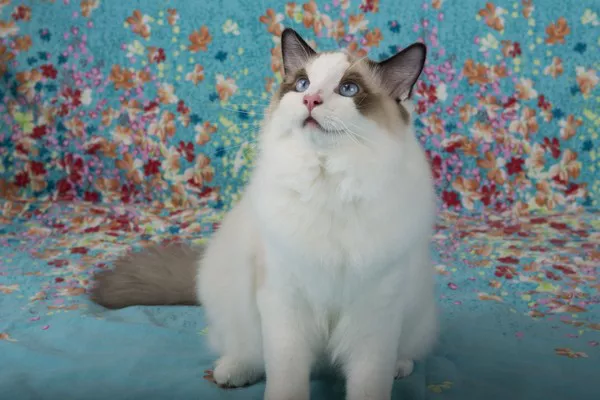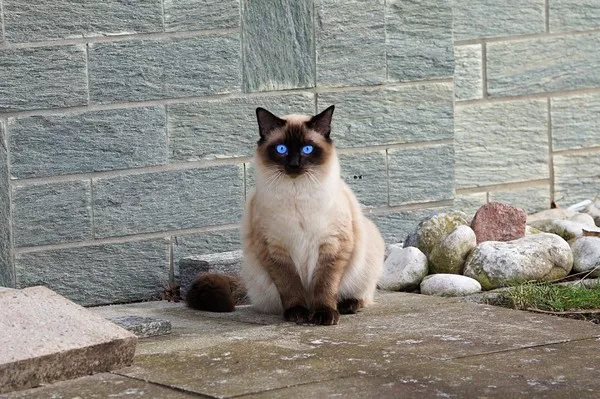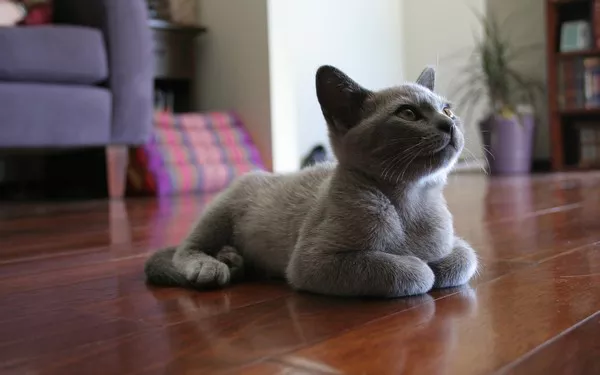Devon Rex cats, with their distinctive appearance and playful demeanor, have long been beloved by cat enthusiasts around the world. Known for their unique curly coat, large ears, and mischievous personality, Devon Rex cats possess a charm and charisma that sets them apart from other breeds. However, despite their endearing qualities, some individuals may harbor misconceptions about Devon Rex cats, labeling them as “mean” or aggressive. In this article, we aim to dispel these myths and shed light on the true nature of Devon Rex cats.
Understanding Devon Rex Cats
Before addressing misconceptions about their temperament, it’s essential to understand the characteristics and traits of Devon Rex cats.
Physical Appearance: Devon Rex cats are characterized by their distinctive appearance, which includes large, low-set ears, short, curly fur, and slender bodies. Their unique coat is soft to the touch and often described as “rexed,” with a texture similar to that of lamb’s wool.
Personality Traits: Devon Rex cats are known for their playful, affectionate, and sociable nature. They thrive on human companionship and enjoy interacting with their owners through play, cuddling, and vocalizations. Devon Rex cats are often described as “clownish” due to their playful antics and spirited personality.
Debunking the Myth of Meanness
Despite their reputation as loving and affectionate companions, Devon Rex cats may sometimes be unfairly labeled as “mean” by individuals who misunderstand their behavior. However, it’s essential to recognize that perceived meanness in cats is often the result of misunderstanding or misinterpretation rather than inherent aggression.
Misunderstood Behavior
Many behaviors exhibited by Devon Rex cats may be misinterpreted as “mean” or aggressive when, in reality, they are simply expressions of their unique personality traits.
Playfulness: Devon Rex cats are highly energetic and playful animals who enjoy engaging in interactive play with their owners. However, their exuberant playfulness may sometimes be mistaken for aggression, especially if they become overly enthusiastic or rough during play sessions.
Assertiveness: Devon Rex cats are confident and assertive creatures who know what they want and aren’t afraid to express their desires. While their assertiveness may come across as pushy or demanding at times, it’s important to recognize that they are simply advocating for their needs and preferences.
Vocalizations: Devon Rex cats are known for their vocal nature and may vocalize to communicate with their owners or express their emotions. However, their meows, chirps, and trills may be misconstrued as signs of aggression or irritation if misunderstood.
Individual Variations
It’s important to recognize that each Devon Rex cat is a unique individual with its own personality, temperament, and preferences. While some Devon Rex cats may be more outgoing and sociable, others may be more reserved or independent. It’s unfair to generalize the behavior of all Devon Rex cats based on the actions of a few individuals.
Environmental Factors
External factors such as stress, fear, or changes in the environment can also influence a cat’s behavior and demeanor. Devon Rex cats may exhibit signs of aggression or hostility if they feel threatened or insecure in their surroundings. It’s essential to create a safe and comfortable environment for Devon Rex cats to thrive and flourish.
Understanding Aggressive Behavior
While Devon Rex cats are not inherently mean or aggressive, they may exhibit aggressive behavior in certain situations. Understanding the underlying causes of aggression can help address and mitigate these behaviors effectively.
Fear or Anxiety: Devon Rex cats may become aggressive if they feel threatened or fearful in their environment. Loud noises, sudden movements, or unfamiliar people or animals may trigger feelings of anxiety or insecurity in cats, leading to defensive or aggressive behavior.
Pain or Discomfort: Cats may lash out aggressively if they are experiencing pain, discomfort, or illness. It’s essential to monitor your Devon Rex cat’s health and well-being regularly and seek veterinary attention if you notice any signs of distress or discomfort.
Territorial Behavior: Like many other cat breeds, Devon Rex cats may exhibit territorial behavior, especially in multi-cat households or when introduced to new environments. Aggressive behavior, such as hissing, growling, or swatting, may occur as cats establish and defend their territory.
Conclusion
In conclusion, Devon Rex cats are not inherently mean or aggressive animals. Instead, they are playful, affectionate, and sociable companions who thrive on human interaction and companionship. Misconceptions about Devon Rex cats as “mean” or aggressive often stem from misunderstanding or misinterpretation of their behavior.
By taking the time to understand and appreciate the unique personality traits and characteristics of Devon Rex cats, we can foster deeper connections and stronger bonds with these delightful creatures. Through patience, love, and positive reinforcement, Devon Rex cats can thrive in loving homes and bring joy and companionship to their owners for years to come.


























